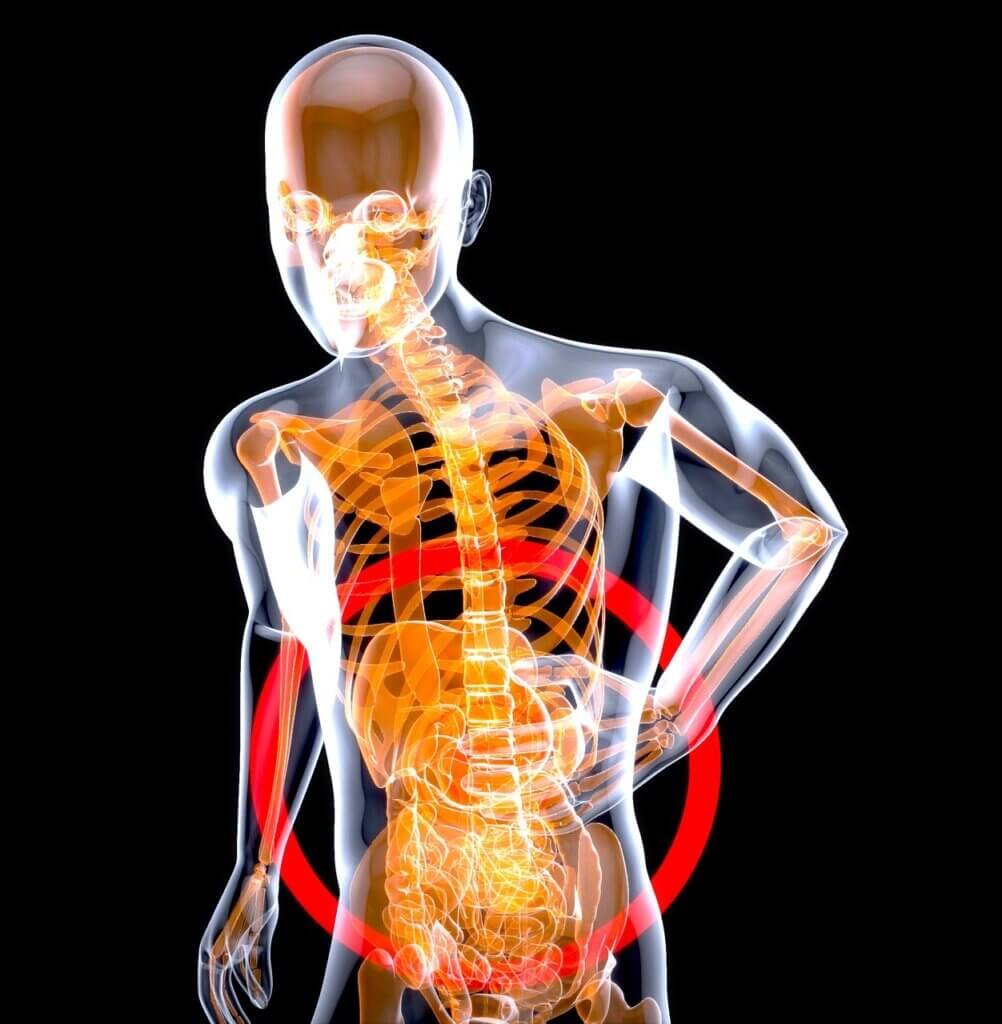Are you a boomer looking to improve your digestive health? Look no further! In this article, we will explore the incredible benefits of probiotics and how they can work wonders for your gut. From reducing bloating to enhancing nutrient absorption, probiotics are a game-changer when it comes to maintaining a healthy digestive system. So, if you’re ready to take charge of your gut health and learn how probiotics can revolutionize your well-being, read on!
Understanding Probiotics
What are probiotics?
Probiotics are live bacteria and yeasts that are beneficial to your health, especially your digestive system. These friendly bacteria can provide numerous health benefits when consumed in adequate amounts. They help to maintain a healthy balance of bacteria in your gut, which is essential for proper digestion and overall well-being.
Types of probiotics
There are several types of probiotics, each with its own unique benefits. The most common types are Lactobacillus and Bifidobacterium. Lactobacillus strains are commonly found in fermented foods like yogurt and sauerkraut, while Bifidobacterium strains can be found in certain dairy products and supplements. Other types of probiotics include Saccharomyces boulardii and Streptococcus thermophilus.
Probiotics and gut health
Your gut health plays a crucial role in your overall well-being, and probiotics can greatly contribute to maintaining a healthy gut. These beneficial bacteria help to break down food, absorb nutrients, and prevent harmful bacteria from flourishing. A balanced gut microbiome fostered by probiotics can improve digestion, boost the immune system, and even enhance mental health. By incorporating probiotics into your daily routine, you can support your gut health and experience the many benefits they offer.
The Importance of Digestive Health for Boomers
Age-related digestive issues
As we age, our digestive system undergoes various changes, leading to an increased risk of digestive issues. Common age-related digestive problems among boomers include slower digestion, decreased production of digestive enzymes, and a weakened immune system. These changes can contribute to issues such as indigestion, bloating, and constipation.
Impact of poor digestive health
Poor digestive health can have a significant impact on the overall well-being of boomers. It can lead to uncomfortable symptoms such as abdominal pain, gas, and diarrhea, which can greatly affect daily life. Furthermore, compromised digestion can impair nutrient absorption, leading to nutritional deficiencies. Digestive problems may also increase the risk of developing more serious conditions such as gastrointestinal infections and inflammatory bowel diseases.
Benefits of maintaining good digestive health
Maintaining good digestive health is vital for boomers to enjoy a high-quality life. By prioritizing digestive health, boomers can experience improved nutrient absorption, enhanced energy levels, and better overall digestion. Good digestive health can also promote a strong immune system, reduce the risk of certain diseases, and contribute to better mental health. Taking proactive steps to support digestive health, such as incorporating probiotics into the diet, can have a transformative effect on overall well-being.

Choosing the Right Probiotics
Consulting a healthcare professional
Before incorporating any new supplement into your routine, it is crucial to consult with a healthcare professional. They can evaluate your unique health needs, consider any existing medical conditions, and recommend the most suitable probiotics for you. A healthcare professional can also provide guidance on dosage, potential interactions with medications, and any precautions you need to take.
Identifying specific digestive issues
Different probiotics may have specific benefits for certain digestive issues. If you are experiencing specific symptoms or digestive problems, it can be helpful to identify the root cause and choose probiotics accordingly. For example, if you struggle with irritable bowel syndrome (IBS), probiotics containing Bifidobacterium strains may be beneficial, as they have been shown to help relieve IBS symptoms.
Reading probiotic product labels
When choosing probiotics, it’s essential to read product labels carefully. Look for the specific strains of bacteria included in the product and ensure they are known to provide digestive health benefits. Additionally, check the expiration date to ensure the probiotics are still active and effective. Pay attention to storage instructions, as some strains may require refrigeration for maximum potency. By being an informed consumer, you can select the right probiotics to support your digestive health effectively.
Common Probiotic Strains for Digestive Health
Lactobacillus acidophilus
Lactobacillus acidophilus is one of the most well-known probiotic strains, known for its ability to promote gut health. It helps maintain the balance of bacteria in the intestines, preventing the overgrowth of harmful bacteria. This strain has been shown to be beneficial for various digestive issues, including diarrhea, lactose intolerance, and irritable bowel syndrome (IBS).
Bifidobacterium bifidum
Bifidobacterium bifidum is another common probiotic strain that is naturally present in the gut. It helps to break down complex carbohydrates, produce essential vitamins, and protect against harmful bacteria. Bifidobacterium bifidum has been found to be effective in alleviating symptoms of constipation, reducing inflammation in the gut, and promoting overall digestive health.
Lactobacillus plantarum
Lactobacillus plantarum is a powerful probiotic strain known for its ability to support the health of the gastrointestinal tract. It can withstand harsh stomach acid, making it more likely to reach the intestines alive and provide its benefits. Lactobacillus plantarum has been shown to help reduce inflammation in the gut, alleviate symptoms of irritable bowel syndrome (IBS), and enhance overall digestive function.
Streptococcus thermophilus
Streptococcus thermophilus is a probiotic strain that is commonly used in the production of yogurt and other fermented dairy products. It has been shown to improve lactose digestion, making it particularly beneficial for those who are lactose intolerant. Streptococcus thermophilus can also aid in the maintenance of a healthy gut microbiome, supporting overall digestive health.
Saccharomyces boulardii
Saccharomyces boulardii is a probiotic yeast that is known for its ability to prevent and reduce the severity of diarrhea. It functions by balancing the gut microbiota, inhibiting the growth of harmful bacteria, and promoting a healthy immune response. Saccharomyces boulardii has been extensively studied and found to be effective in managing various gastrointestinal infections, including infectious diarrhea and antibiotic-associated diarrhea.

Probiotics and Specific Digestive Issues
Irritable bowel syndrome (IBS)
Irritable bowel syndrome (IBS) is a common digestive disorder characterized by symptoms such as abdominal pain, bloating, and changes in bowel habits. Probiotics, especially certain strains like Bifidobacterium bifidum and Lactobacillus acidophilus, have shown promising results in reducing IBS symptoms. These probiotics help restore the balance of gut bacteria, alleviate inflammation, and improve overall gut function.
Constipation
Constipation is a common problem among boomers, and probiotics can be a helpful addition to the management of this condition. Probiotics like Bifidobacterium bifidum and Lactobacillus plantarum can increase the frequency and improve the consistency of bowel movements. They do so by enhancing gut motility and promoting the growth of beneficial bacteria in the intestines.
Diarrhea
Probiotics have been extensively studied for their ability to prevent and manage various types of diarrhea. Probiotic strains such as Saccharomyces boulardii and Lactobacillus acidophilus have been found to be particularly effective in reducing the severity and duration of infectious diarrhea, antibiotic-associated diarrhea, and traveler’s diarrhea. These probiotics work by restoring the balance of gut bacteria and inhibiting the growth of harmful pathogens.
Gastrointestinal infections
Gastrointestinal infections, such as those caused by bacteria or viruses, can disrupt the delicate balance of gut bacteria and lead to digestive issues. Probiotics, including certain strains of Lactobacillus and Bifidobacterium, have been shown to have a positive impact on gastrointestinal infections. They can help in preventing or reducing the severity of infections, promoting faster recovery, and restoring normal gut function.
Factors Affecting Probiotic Effectiveness
Survivability and viability of probiotics
The effectiveness of probiotics greatly depends on whether they can survive the harsh acidic environment of the stomach and reach the intestines alive. Look for strains that have been shown to have good survivability and viability during manufacturing and storage. Additionally, taking probiotics with or shortly before meals can help protect them from stomach acid, increasing their chances of reaching the intestines intact.
Dosage and frequency
The dosage and frequency of probiotic consumption are important factors in their effectiveness. It is crucial to follow the recommended dosage instructions for the specific probiotics you are taking. Taking too little may not provide sufficient benefits, while taking too much may not necessarily yield better results and can lead to unnecessary expenses. Consistency is key, so aim to take probiotics regularly to maintain a healthy balance of gut bacteria.
Interactions with medications
Probiotics, like any other supplement, can potentially interact with certain medications. It is important to consult with a healthcare professional before starting any new probiotic regimen, especially if you are taking medications or have underlying health conditions. They can provide guidance on potential interactions and adjust your medication or probiotic regimen accordingly to ensure both are safe and effective.

Incorporating Probiotics into the Diet
Probiotic-rich foods
One of the easiest ways to incorporate probiotics into your diet is by consuming probiotic-rich foods. Yogurt, kefir, sauerkraut, kimchi, and pickles are all examples of probiotic-rich foods. These foods contain live cultures of beneficial bacteria and can provide a natural source of probiotics. Including a variety of these foods in your diet can help support your digestive health and provide additional nutritional benefits.
Dairy and non-dairy options
Probiotics are commonly found in dairy products like yogurt, but there are also non-dairy options available for those who are lactose intolerant or follow a vegan or dairy-free diet. Look for non-dairy yogurts or fermented foods made from plant-based alternatives like coconut or almond milk. Additionally, there are probiotic supplements available that do not contain any dairy ingredients, making them suitable for individuals with dietary restrictions.
Supplements and their efficacy
Probiotic supplements are another convenient option for incorporating probiotics into your daily routine. They come in various forms such as capsules, tablets, powders, and chewables, making it easy to find a suitable option for your preferences. When choosing a probiotic supplement, opt for reputable brands that provide specific strain information and guarantee the potency and viability of their products. Probiotic supplements can be a beneficial addition to a balanced diet and can help ensure you are getting adequate amounts of beneficial bacteria.
Supporting Digestive Health Alongside Probiotics
Fiber-rich diet
A fiber-rich diet is essential for maintaining good digestive health and can complement the benefits of probiotics. Fiber acts as a prebiotic, providing nourishment for the beneficial bacteria in your gut. Include a variety of fruits, vegetables, whole grains, and legumes in your diet to boost your fiber intake. This will help promote healthy bowel movements, prevent constipation, and support a diverse gut microbiome.
Staying hydrated
Adequate hydration is essential for optimal digestion and overall well-being. Water helps to soften stools, prevent constipation, and aid in the proper absorption of nutrients. Additionally, it helps to flush out toxins and waste products from the body, maintaining a healthy gut environment. Aim to drink at least 8 cups of water per day and increase your intake during hot weather or physical activity.
Regular exercise
Regular exercise is not only beneficial for cardiovascular health and weight management but also plays a role in maintaining a healthy digestive system. Exercise helps stimulate the muscles in the digestive tract, promoting regular bowel movements and preventing constipation. It can also reduce stress, which is known to impact digestive health. Engage in activities you enjoy, such as walking, swimming, or yoga, to incorporate regular exercise into your routine.
Managing stress levels
Stress can have a significant impact on digestive health, as it can disrupt the balance of gut bacteria and worsen digestive symptoms. Finding effective stress management techniques, such as practicing mindfulness, deep breathing exercises, or engaging in hobbies, can help support your digestive health. Consider incorporating relaxation techniques into your daily routine to reduce stress levels and promote overall well-being.

Precautions and Possible Side Effects
Allergies and sensitivities
While probiotics are generally considered safe, it is important to be aware of potential allergies or sensitivities. Some individuals may experience adverse reactions such as allergic reactions, gas, bloating, or stomach discomfort when consuming certain probiotics. If you have a known allergy to a specific strain of bacteria or yeast, it is essential to avoid probiotics that contain that particular strain. If you experience any concerning symptoms after starting a new probiotic, consult with a healthcare professional.
Potential interactions
Probiotics can potentially interact with certain medications, particularly antibiotics. Antibiotics can kill both harmful and beneficial bacteria, affecting the balance of gut microbiota. If you are taking antibiotics, it is important to discuss with your healthcare professional whether probiotic supplementation is appropriate and how to time it with your antibiotic regimen. They can provide guidance on when to take probiotics to maximize their benefits and minimize any potential interactions.
Consulting a healthcare professional
It is always a good idea to consult with a healthcare professional before making any significant changes to your diet or taking new supplements. They can provide personalized advice, taking into consideration your individual health needs, existing medical conditions, and any medications you are taking. A healthcare professional will be able to recommend the most suitable probiotics for you and ensure they align with your overall healthcare plan.
Conclusion
In conclusion, probiotics play a crucial role in supporting digestive health, especially for boomers. By understanding the benefits of probiotics, boomers can prioritize their digestive health and enjoy improved overall well-being. By choosing the right probiotics, consulting healthcare professionals, and incorporating them into a balanced diet and healthy lifestyle, boomers can take proactive steps to support their digestive health and maintain a high quality of life. With the wealth of probiotic options available, boomers can find the best probiotic strains to address their specific digestive issues and experience the many benefits probiotics have to offer. So embrace the power of probiotics and make your digestive health a priority today!



